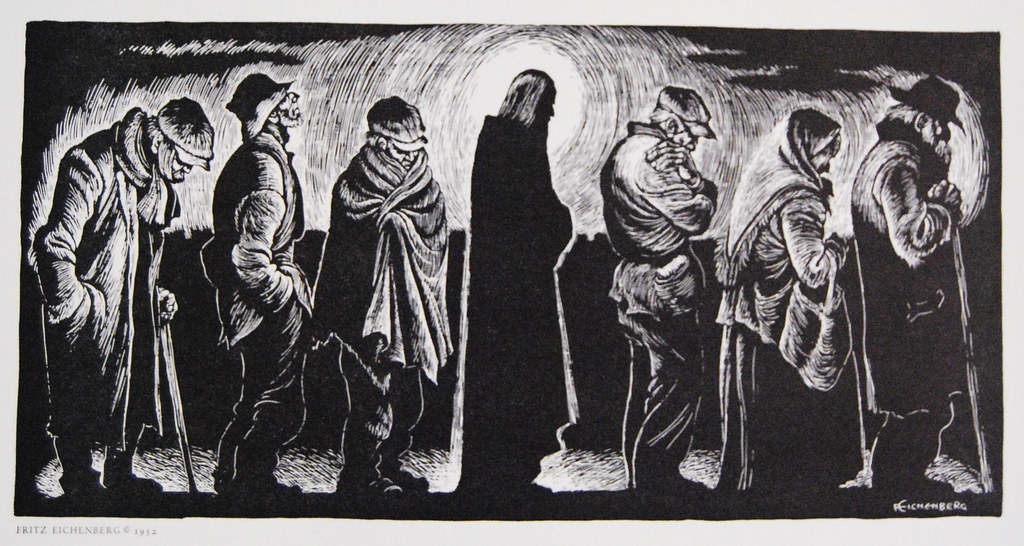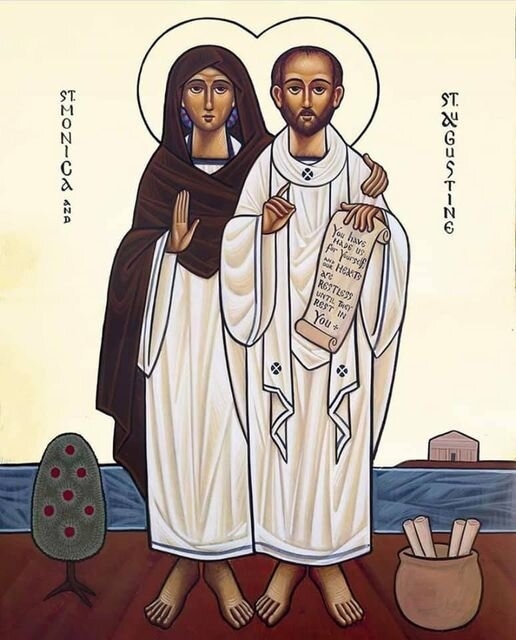These reflections are a result of more than 40 years of ministry as a Roman Catholic priest. Most of these years I spent in the Diocese of Charlotte which covers Western North Carolina. Now I am retired, and live in Medellín, Colombia where I continue to serve as a priest in the Archdiocese of Medellín.

Jesus came to Nazareth, where he had grown up,
and went according to his custom
into the synagogue on the sabbath day . . . .
They rose up, drove him out of the town,
and led him to the brow of the hill
on which their town had been built, to hurl him down headlong.
But he passed through the midst of them and went away. (Lk 4:16-30)
The weekday lectionary begins the continuous reading of the Gospel of Luke. Jesus comes to his home town to begin his public ministry. He preaches about how God intervenes on behalf of foreigners. Things don’t go so well.

Be doers of the word and not hearers only. (Jas 1:17-18,21b-22,27)
To be doers of the word and not hearers only . . . to put our faith into action . . . well, as the Letter of James points out, religion that is pure and undefiled is always practical: caring for orphans and widows, feeding the hungry, sheltering the homeless, working for justice. Today's picture is Christ of the Breadlines (1950) by Fritz Eichenberg. The hymn in today's video is Cristo Te Necesita, which says: "Christ needs you in order to love."

Jesus told his disciples this parable:
“A man going on a journey
called in his servants and entrusted his possessions to them.
To one he gave five talents; to another, two; to a third, one–
to each according to his ability.” (Mt 25:14-30)
In the Parable of the Talents it’s always good to remember that in the Bible a talent is not necessarily an ability . . . rather it is a measure of money, lots and lots of money—over a million dollars! So the Parable that Jesus tells is not an illustration from everyday life—rather the parable is about the Kingdom of God. As Saint Augustine regretted not having spent more of his life working for the Kingdom, he prayed to God: “Late have I loved you, O Beauty ever ancient, ever new, late have I loved you!” Today is also my mom’s anniversary. She has been gone 25 years. And like Saint Monica asked her son Augustine to do, it is my privilege to remember my mom always at the Altar of the Lord.

“Therefore, stay awake,
for you know neither the day nor the hour.” (Mt 25:1-13)
The Parable of the Bridesmaids is a marvelous reminder to be prepared for the coming of the Lord. As the ancient Liturgy of Saint John Chrysostom reminds us: So that we may have “a good defense before the awesome judgment seat of Christ.” Today is the feast of Saint Monica, the mother of Saint Augustine whose feast day is tomorrow. As she lay dying she told her son, “Remember me always at the Altar of the Lord.”

Responsorial Psalm (Psalm 90)
R. Fill us with your love, O Lord, and we will sing for joy!
Fill us at daybreak with your kindness,
that we may shout for joy and gladness all our days.
And may the gracious care of the LORD our God be ours;
prosper the work of our hands for us!
Prosper the work of our hands!
R. Fill us with your love, O Lord, and we will sing for joy!
What a joyful psalm! To be filled with the love of the Lord . . . to shout for joy and gladness all our days. And the final petition: Prosper the work of our hands! The work of our hands is to build a world of justice where everyone can find a place at the table of the human family.



